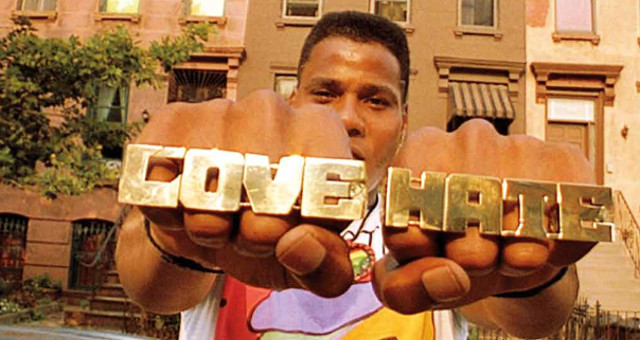I then asked the person if they had ever exercised before in their life? They laughed and said "of course, but what the hell does that have to do with anything?" I then asked them if they had dieted before? Had a relationship? Pursued education? Developed a skill they are now good at? In each instance they, like all of us, had done some variation of all of those things. So with that, I asked them what the common denominator is with all of those things? After some back and forth, I explained that the common element is all of those things require struggle e.g. confrontation and discomfort. You can't go to high school or college and complete without struggle. Remember those long caffeine induced nights of studying? Was that easy? When you worked to get in shape by running, lifting weights, doing squats, burpies, was any of that fun while you were doing it? Has any relationship you have had that was good been without its conflict? And, isn't the reason you view that relationship as positive is because you learned how to work through the conflict in a productive fashion? The point is Frederick Douglass was correct when he said "there is no progress without struggle." That is a universal principle that applies to any aspect of life. The reason we know this because that principle is tied to the scientific principle of dialectical and historical materialism. The short version/definition is everything tangible is materially based which means it occupies space and holds weight. Look around you for examples, they are everywhere. In fact, the only thing that probably won't qualify is your ideas, emotions, etc. The question is how does material move? How does it make history? How does it manifest itself in society? It does it through history, meaning the manifestation in which the material evolves from one form to another e.g. bauxite to aluminum, cocoa to chocolate, coltan to computers/cell phones, etc. It also evolves through the process of dialetics, or the struggle of opposites. Every piece of material, including each of us, is involved in a struggle of the power of opposites. Which side will win? Youth/age, love/hate, right/wrong, etc. If you think about it, those questions form the essence of what your life consists of in one form or another. So, this struggle is universal and there is absolutely no way around it. There has to be struggle in order for you to move forward. Me to move forward. For us to move forward. And, as Kwame Nkrumah succinctly put it, the primarily dialectical struggle is the class struggle between the haves and the have nots.
What all this means is we have to learn how to discard the teachings of the capitalist system. It teaches us incorrectly that our objective should be to try and avoid struggle at all costs. In fact, it teaches that struggle/confrontation, etc. are bad words which means things are going to be hard for you and who wants everything to be hard? No one wants everything to be hard, but there are many things, ironically most things that are worthwhile - like freedom -that will require struggle and confrontation to achieve victory. So, this thinking that avoiding struggle is a positive work is idealistic and dysfunctional. The old African proverbs like "the rougher the water, the stronger the swimmer" is correct. It's through addressing difficulty and working through it that we learn how to become better human beings. So, this is critical to understand because this healthy logic of confronting difficulty, especially in collective fashion, is the key to us solving the problems we face. Capitalism doesn't want that to happen. It wants us to continue to believe like the person I mentioned; that struggle is a negative. If we believe that, then we will believe success against capitalism is not achievable and since our objective is to avoid struggle, then we will stop the moment we face adversity. For those who are involved in relationships and organizations, isn't that what happens? The minute there's conflict, people are gone. Is that right or wrong? Far to often, it's right. Struggle is unavoidable and the only way you get better at navigating through it is by practicing. That means hanging in there and working it out. Try it with your family when things get tense. Try it with your partner. Try it when the reading you are trying to do gets difficult. And, definitely try it when you run into that person or persons (and you will, or already have) in your organization who you have conflict with. I know we can do it because I see us hang in there with oppressive jobs and reactionary relationships because we perceive some benefit, like a pay check, in enduring that oppression, but we don't see the same benefits in the organizations and relationships that are attempting to bring liberation. Or, maybe we respect our enemies more than each other? Well, if we are serious about fighting back, we are going to have to change our thinking. You can't beat science anyway and conflict is unavoidable. Or, if you think you have a way to successfully get through life, solving all these problems, without encountering and addressing conflict, I wish you would stop making us all suffer and share your secret.


 RSS Feed
RSS Feed
